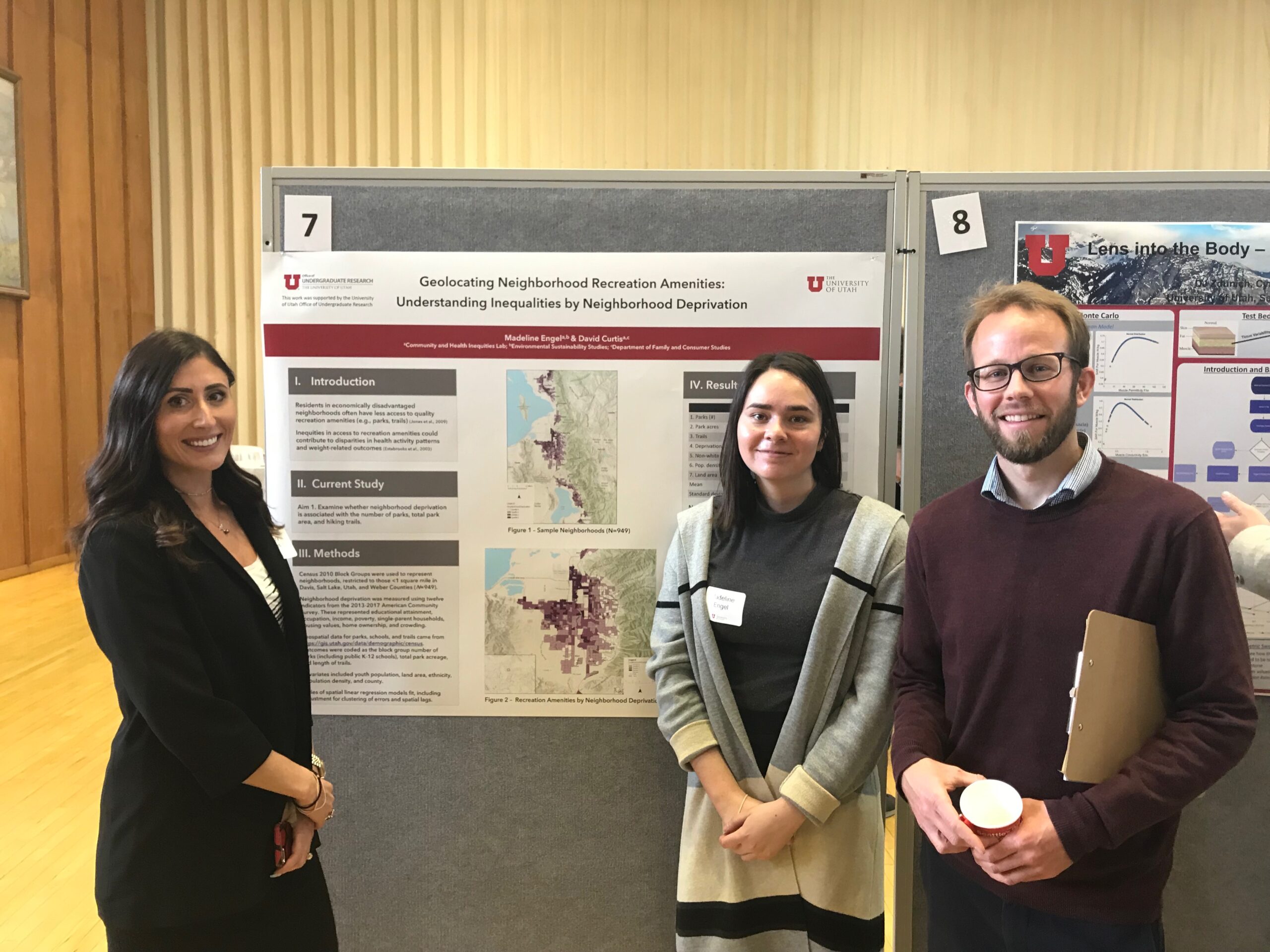Project Background
This research project will investigate the relationship between long-term air pollution exposure and cardiometabolic health outcomes, with a focus on differences in sensitivity by age and biological sex. Moreover, we will test physiological and psychosocial mechanisms of the link between air pollution and cardiometabolic health that may account for demographic differences in sensitivity. For this project, students will use longitudinal data from the Midlife in the United States study for more than 7,000 participants, with the follow-up period covering up to twenty-five years (from 1995 to 2019). The MIDUS study leverages an extremely rich set of measures and data collection protocols, and is well-suited for the current project. Faculty investigators for this research project have prepared area-level data, including air pollution and other natural environmental features, for multiple time points, and these have been linked to the MIDUS study records based on participant residential addresses. Extensive data preparation and documentation has occurred for related research studies and to facilitate collaboration and training opportunities. Thus, student researchers will benefit from the impressive research resources available as part of the larger research project. Given the increasing concern over the health impacts of pollution, this research is both timely and important. Cardiometabolic disease is one of the leading causes of mortality, with approximately 14.1% of the US adult population at risk in 2017-18. By identifying who is most vulnerable to pollution exposure and physiological and psychosocial mechanisms, we aim to influence policy and practice recommendations to reduce the impact of air pollution.
Student Role
Undergraduate researchers accepted for this project will have the opportunity to actively engage in the entire research process. This includes specifying a research question, developing methods to test a hypothesis, data preparation and analysis, and communicating the results from a study. In more detail, student researchers would be involved in reviewing relevant literature; preparing a written, strong rationale for their research study; describing testable research questions and the methods to be used; preparing a set of variables for the proposed analyses; and describing the study findings in the form of a presentation and manuscript. We believe in offering a hands-on, supported research experience that will enable students to gain practical skills in research methods, data analysis, and scholarly communication. The student would become part of a team and could leverage the expertise of a postdoctoral researcher and faculty investigator, and the team resources (e.g., previously identified relevant studies, extensive data preparation), in order to participate in an accelerated research process.
Student Learning Outcomes and Benefits
Participating in our research project will provide students with the opportunity to be involved in impactful research and to develop methodological and data analytical skills that will position them well for their academic and professional futures. Student researchers will develop critical thinking skills, enhance their knowledge of the link between pollution and health as well as relevant research methodologies, and gain experience in interdisciplinary collaboration. Our lab will also provide mentorship and guidance to help students develop research projects of their own, fostering independence and creativity.
This project is funded through a NIEHS R25 called HAPPIEST (Health, Air Pollution and Population Initiative in Education and Science Training), which runs in conjunction with SPUR. HAPPIEST trains students from underrepresented racial/ethnic backgrounds in air pollution-related health research. Since the impacts of pollution are worse in racial/ethnic minority and low-income communities, it is imperative to engage researchers from these communities in addressing the complex problems of air quality and environmental inequity. However, scientists from racial/ethnic minority backgrounds are underrepresented among faculty at US universities. Faculty-mentored research experiences for undergraduate students, like those offered through SPUR/HAPPIEST, have been shown to be particularly successful pathway to diversify the US research workforce.

David Curtis
My mentoring philosophy is based on principles of trust, support, and collaboration. I believe that individuals can excel in developing and carrying out creative and high-quality research when given the opportunity and supported with the necessary resources. Students can expect one-on-one and group meetings with experienced researchers for discussions of research ideas, methodological training, and professional development. Student researchers will receive training in using lab resources, such as prepared data files. I will offer students multiple opportunities to present their research ideas and share progress on their project with the full lab group. I aim to foster a supportive and inclusive research environment, emphasizing teamwork and mutual learning. In addition, I will support students in attending SPUR program meetings and trainings.
To learn more about HAPPIEST, please visit here!
